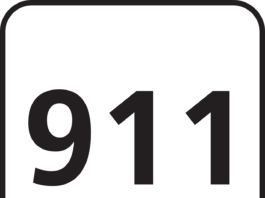Township administrator believes banks are paying taxes on abandoned homes to use as equity pools

The township is in a battle with the banks.
Currently, 103 houses sit abandoned in Harrison Township — down from 276 in 2016.
Mark Gravinese, the township’s administrator, gave a presentation on the township’s action to combat the number of abandoned homes during a recent township committee meeting.
“Legally we can’t prove it, but [the banks] are using it as equity to borrow money, all these houses,” he said.
He added the banks are paying the taxes on each home but not registering the properties to move each one toward the market.
“It has a been a challenge but we are full-steam-ahead,” he said when detailing the township’s actions concerning the issue in the past three years, which include activity in Superior Court.
In 2016, the township met with officials in Somerdale Township to see how that township was battling its own issue of abandoned homes.
“They were the first to take action on abandoned houses,” Gravinese said, referencing a growing problem in the state.
Like officials in Somerdale, Harrison Township noticed many houses were sitting with no progression toward the market.
Harrison then partnered with Gardner Group, a rehabilitation entity that inspects homes and develops plans to put properties back on the market.
The township also entered into a shared services agreement with the county to utilize the benefits of Community of Champions, a government benefits program that assures registrations of the abandoned homes and requires the banks to pay fees to the township and county.
“This is where we register the properties. The bank has to pay us a fee, the county a fee and Community of Champions. Once they do that, we have them on the books and we can go after them,” he said, adding this action allows the township to fine the banks on maintenance violations.
However, trouble churned when the township realized the fines were being circulated to other entities — other companies — in the banks, according to Gravinese.
This action forced judges to rescind from penalizing the banks.
Gravinese mentioned one bank wrote a check for $12,000 after the township pounded it with municipal fines.
“We don’t want the money. We want action,” Gravinese said.
However, the township has seen some success, and of the 10 houses Gardner Group committed to getting onto the market, only one case remains active in court; the other nine were taken off the abandoned house list.



